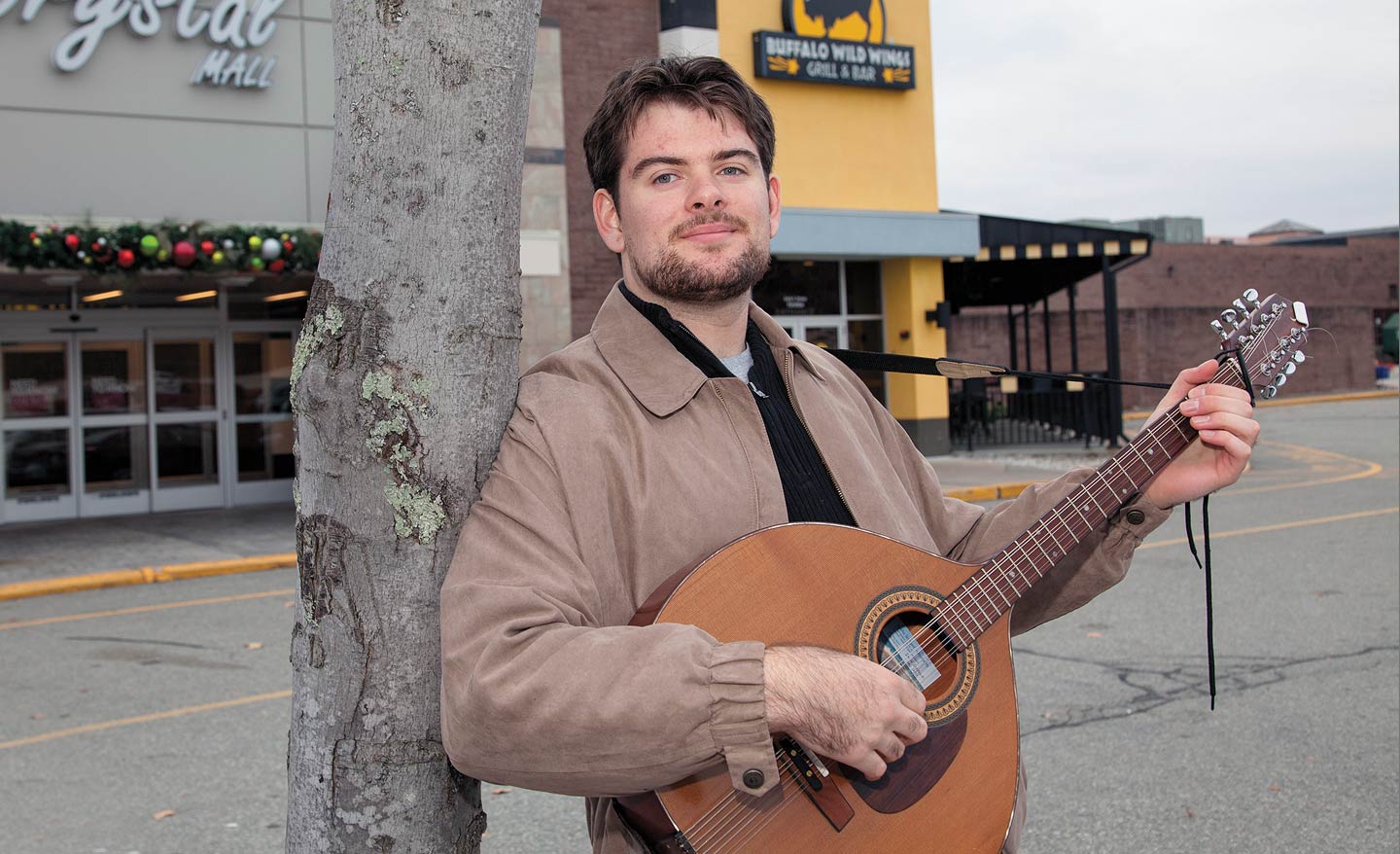A Political Tenor
Baird Welch-Collins ’18 was elected to a two-year term on the Waterford, Connecticut, town government atop a wave of successful local Green Party candidates.
His email address proudly announces, “Baird the Great.” But this digital moniker belies his humility and earnestness when it comes to public service and local politics.
In November, Baird Welch-Collins’18 was elected to a two-year term on the Waterford, Connecticut, town government atop a wave of successful local Green Party candidates.
The government major and lifelong resident of Waterford first developed an interest in politics as a high school student—a natural evolution from his passion for environmental activism. But Welch-Collins didn’t quite see where he fit into the traditional two-party system, so he began exploring alternatives.
“I knew that the Republican Party certainly didn’t reflect my political views, but a deeper analysis of the Democratic Party revealed it also wasn’t exactly what I was looking for,” Welch-Collins says. “The Ten Key Values of the Green Party directly lined up with my personal views, and so the next logical step seemed to be forming a local Green Party chapter.”
Before long, Welch-Collins was elected co-chair of the Connecticut Green Party and was serving on the Waterford Flood and Erosion Control Board as treasurer, where he gained experience managing and protecting the town’s many coves, streams and rivers from environmental threats.
He believes the success of his local Green Party can be attributed to coalition-building with Democratic officials in the state and a coordinated effort to offer nonpartisan, pragmatic solutions to problems that impact the broader community instead of focusing on a narrowly targeted constituency.
“Voters are looking to support candidates outside of the two parties, but who are still able to win and who are willing to work within the realities of that two-party system,” Welch-Collins says. “Simply pretending that system doesn’t exist helps nothing—redefining our role in that system is what will ultimately give us a bigger voice in government.”
The first specific legislative proposal Welch-Collins and his Green Party allies plan to introduce would implement a municipal ban on fracking waste, something he says should be a top priority for communities throughout the region. Longer term, he hopes to focus on developing an economic climate that allows small businesses to flourish in Waterford.
“A local economy is a strong economy, and economic sustainability goes hand in hand with environmental sustainability,” he argues.
One of the key figures in his development as a community leader is Welch-Collins’ faculty adviser, Professor of Government MaryAnne Borrelli, who has taught him to apply his ideology and theoretical knowledge to real-life government challenges.
“Professor Borrelli’s classes really brought home the nuances and realities of government and gave me a frame of reference where I felt confident turning my values into policy,” he explains.
Welch-Collins is also one of the few commuter students at Conn, which he says allows him to remain deeply involved in his local community and still continue to pursue an eclectic range of hobbies, such as blacksmithing, beekeeping and playing folk music. He performs frequently both solo and with local musicians, alternating between eight or 10 instruments, including the guitar, banjo and his Irish bouzouki (pictured).
“Being a folk musician has always related to my politics and to my interest in history,” he says. “Folk music tells the story directly from the mouths of the people who experienced it, and that’s a unique voice from both the past and the present.”
During the course of the campaign, Welch-Collins knocked on hundreds of doors in his district to speak with voters face-to-face. And while the sheer amount of time that required sometimes posed a challenge, he says it was enormously rewarding.
“In our modern society, walking up to your neighbor’s door and knocking is a rare experience, but getting to know the people in my community was definitely my favorite part of campaigning.”
That level of personal engagement is a key ingredient Welch-Collins believes is missing in politics today, and he plans to work with his colleagues from other parties, who he describes as his friends and neighbors.
The specifics of his post-Conn plans are still developing, but the busy senior doesn’t expect to stay in just one lane.
“I’m currently working towards my Connecticut education certification at Conn, and I’ll most likely remain in the area pursuing a career in education, politics or both. I’m involved in a lot of things: education, politics, blacksmithing and music, so I’m looking forward to having multiple careers.”
